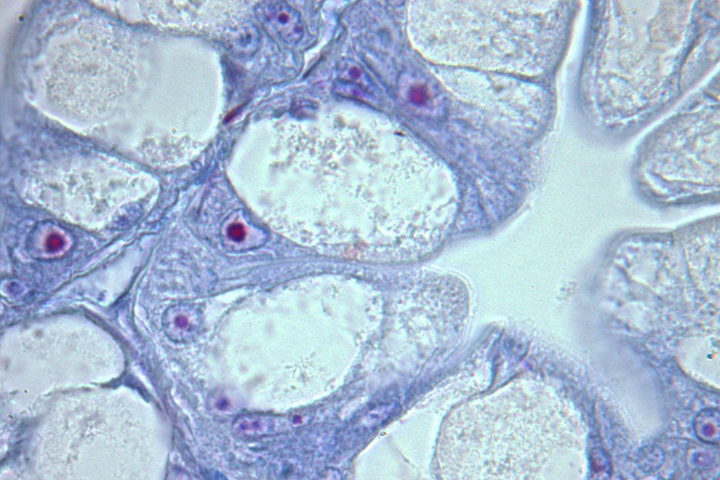Comparing a Standard Chemotherapy With and Without a PARP Inhibitor

Can the addition of a PARP inhibitor make standard chemotherapy more effective in patients whose pancreatic cancer has started to spread again?
A clinical trial compares a standard second-line chemotherapy—treatment given when the cancer has returned or is no longer controlled by the original chemotherapy—with the same treatment plus an additional experimental drug.
Preventing DNA Repairs in Cancer Cells
The PARP enzyme is important in repairing small breaks in single DNA strands. Drugs that block the action of PARP—in this trial the drug veliparib—make the enzyme less effective at repairing the small breaks. In patients with or without BRCA mutations, PARP inhibitors may work by keeping cancer cells from repairing themselves once they have been damaged by chemotherapy. Healthy cells are spared.
Comparing Treatments
FOLFIRI is a variation of one of the standard treatments for advanced pancreatic cancer. It is a three-drug combination: FOL (leucovorin calcium, or folinic acid), F (fluorouracil, or 5-FU), and IRI (irinotecan hydrochloride). Each of these drugs enhances the action of the others. Fluorouracil (5-FU) is an antimetabolite that disrupts a specific part of the cell replication cycle. Derived from folic acid, leucovorin enhances the effects of 5-FU. Irinotecan inhibits the replication and transcription of DNA, and so interferes with cell growth.
In this trial, researchers are comparing overall survival of patients undergoing FOLFIRI chemotherapy, with and without the PARP inhibitor veliparib. PARP inhibitors are known to work particularly well in people who carry the BRCA mutation, so the researchers are also looking at the relationship between effectiveness of the treatment and the presence of BRCA mutations. However, all patients with pancreatic cancer are eligible for this trial, regardless of whether their tumor has a BRCA mutation or not.
The participants are randomly divided into two groups for this open-label trial. One group of patients will receive FOLFIRI plus veliparib, while the other group will receive FOLFIRI only. Participants cannot have received prior treatment with either PARP inhibitors or irinotecan.
We encourage you to consult your physicians for clinical trials that may be right for you. The website ClinicalTrials.gov provides more details about this trial as well as many others. You can visit the Let’s Win Trial Finder for a listing of all active pancreatic cancer clinical trials.
This study is no longer recruiting participants.





